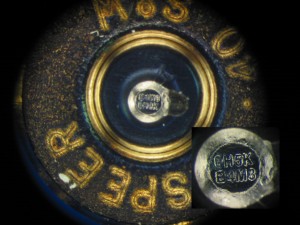August 29, 2012
By Kyle Wintersteen
 If you find it odd that most American-made firearms are manufactured in some of our most anti-gun states, well, you're not alone. It's a curious fact that companies such as Springfield, Kimber, Remington, Smith & Wesson, Ruger, Mossberg, Colt and Savage — just to name a few — continue to do business in New England at all. Why allow your business to boost the economies and government tax coffers of states that neither respect your passion nor your products?
If you find it odd that most American-made firearms are manufactured in some of our most anti-gun states, well, you're not alone. It's a curious fact that companies such as Springfield, Kimber, Remington, Smith & Wesson, Ruger, Mossberg, Colt and Savage — just to name a few — continue to do business in New England at all. Why allow your business to boost the economies and government tax coffers of states that neither respect your passion nor your products?
The bottom line: I suspect many gun companies would leave the second it made financial sense (many western states, Montana especially, are chomping at the bit to host them), but for now the cost of leaving exceeds the cost of staying. However, that may soon change if New York and Connecticut pass legislation that would force gun manufacturers within their states to "microstamp" all semi-automatic handguns, raising the cost to produce each gun by an estimated $200.
Remington, which maintains a factory in Ilion, N.Y., and Colt, which is based in Hartford, Conn., have already publicly discussed leaving, and it's safe to speculate that other companies have privately done the same. Colt executives say the "feel-good legislation" would likely drive many gun makers out of state. And in March, Remington executive Stephen Jackson wrote to New York Gov. Andrew Cuomo, informing him that passage of microstamping legislation would force the company to "reconsider its commitment to the New York market altogether rather than spend the astronomical sums of money" needed to alter equipment and manufacturing processes to microstamp guns.
You might think anti-gun politicos wouldn't care if gun makers fled their state, but this is a time when neither party can risk the perception of being a job-killer. And if Remington leaves Ilion, according to New York State Sen. James Seward, R-Oneonta, 50 people would immediately lose their jobs, and another 1,100 would likely meet the same fate during the transition. The economic impact on Ilion would be disastrous, given its population of 8,000, but New York state would also feel the loss.
Advertisement
Even Chuck Schumer — who's arguably one of the most anti-gun senators in U.S. history — recognizes the importance of Remington's impact on the state economy.
http://www.youtube.com/watch?v=M5cFYi8Bkq8
Schumer has praised Remington numerous times in recent years, most ironically when Remington's parent company acquired Bushmaster, maker of the so-called "assault weapons" Schumer has sought to ban. The fact Schumer would praise Remington for job creation, even when it's hiring people to make guns he would just as soon ban, speaks to the company's immense economic footprint.
Advertisement
However, New York state assemblywoman Michelle Schimel, chief sponsor of the microstamping legislation, is calling Remington's bluff.
"Their main product isn't even semiautomatic guns; the main thrust of what they do are long guns and military contracts," Schimel told Fox News. "As a former businessman, it would be foolish for them to leave the New York market. They are getting a lot of money from the state."
Ah, there an anti-gun politician goes again, downplaying the importance of the civilian marker and ignoring the financial realities of firearm manufacture. The truth is, microstamping would substantially raise manufacturing costs, forcing Remington to increase the cost of its handguns and thereby driving consumers to other brands.
And for what? Microstamping is an unreliable technology with dubious crime-solving applications. An independent 2006 study by the University of California, Davis, tested microstamped guns and found heavy inconsistencies. And are we to believe that criminals would actually buy semi-automatic microstamped guns, use them in crimes and leave behind the shell casings for law enforcement to trace? Or is it more likely that they would seek non-microstamped guns (which also happen to be far more available), or simply use revolvers? Yet Schimel couldn't resist taking a pot shot at Remington.
"It's unfair of them to resist sensible regulation to save lives. It does not impact lawful gun ownership at all," Schimel said.
What's unfair is that Schimel and others are pushing legislation that would force an unproven technology on gun manufacturers, greatly raise the cost to produce and buy firearms, and likely kill thousands of jobs as companies shift operations.
Enjoy articles like this?
Subscribe to the magazine.
Get access to everything Guns & Ammo has to offer.
Subscribe to the Magazine

